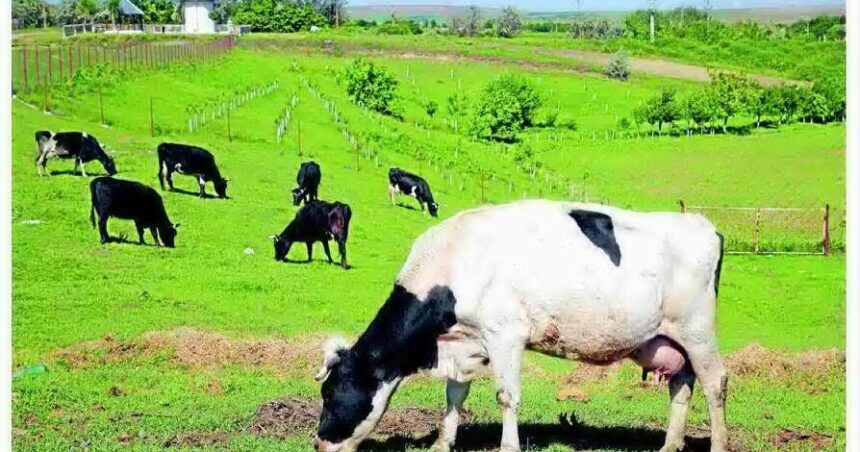COPENHAGEN, Denmark — Denmark is set to impose a tax on livestock farmers for the greenhouse gases emitted by their cows, sheep, and pigs starting from 2030. This initiative makes Denmark the first country to take such action, specifically targeting methane emissions which are a significant contributor to global warming.
The goal is to reduce Danish greenhouse gas emissions by 70% from 1990 levels by the year 2030, according to Taxation Minister Jeppe Bruus.
Starting in 2030, Danish livestock farmers will face a tax of 300 kroner ($43) per ton of carbon dioxide equivalent emissions. This tax rate is set to increase to 750 kroner ($108) by 2035. However, with an income tax deduction of 60%, the actual cost per ton will range from 120 kroner initially to 300 kroner by 2035.
While carbon dioxide often receives more attention for its impact on climate change, methane is a much more potent greenhouse gas. It can trap about 87 times more heat than carbon dioxide over a 20-year period, as stated by the U.S. National Oceanic and Atmospheric Administration.
People are also reading…
Recent years have seen a rapid increase in methane levels, largely attributed to sources like landfills, oil and natural gas systems, and livestock. Livestock activities contribute around 32% of human-induced methane emissions, according to the U.N. Environment Program.
Taxation Minister Bruus stated, “With this move, we are getting closer to achieving climate neutrality by 2045. Denmark will be pioneering in implementing a tangible CO2 tax on agriculture, and we hope to inspire other nations to do the same.”
New Zealand had also planned a similar law effective from 2025, but it was repealed on Wednesday due to strong opposition from farmers after a change in government in 2023. New Zealand opted to exclude agriculture from its emissions trading scheme and explore alternative ways to tackle methane emissions.
The majority of methane emissions from livestock farming, about 90%, stem from the digestion process, specifically through burps released by the animals. Cows are the primary source of this belched methane, with the remaining 10% attributed to manure ponds on pig and cattle farms.
The agreement in Denmark was reached following negotiations involving the center-right government, farmer representatives, industry stakeholders, and unions, among others, and was announced on Tuesday.
This move by Denmark comes in response to widespread farmer protests across Europe against climate change mitigation measures and regulations that have been deemed financially burdensome.
The Danish Society for Nature Conservation, the largest environmental organization in Denmark, hailed the tax agreement as “a historic compromise.”





